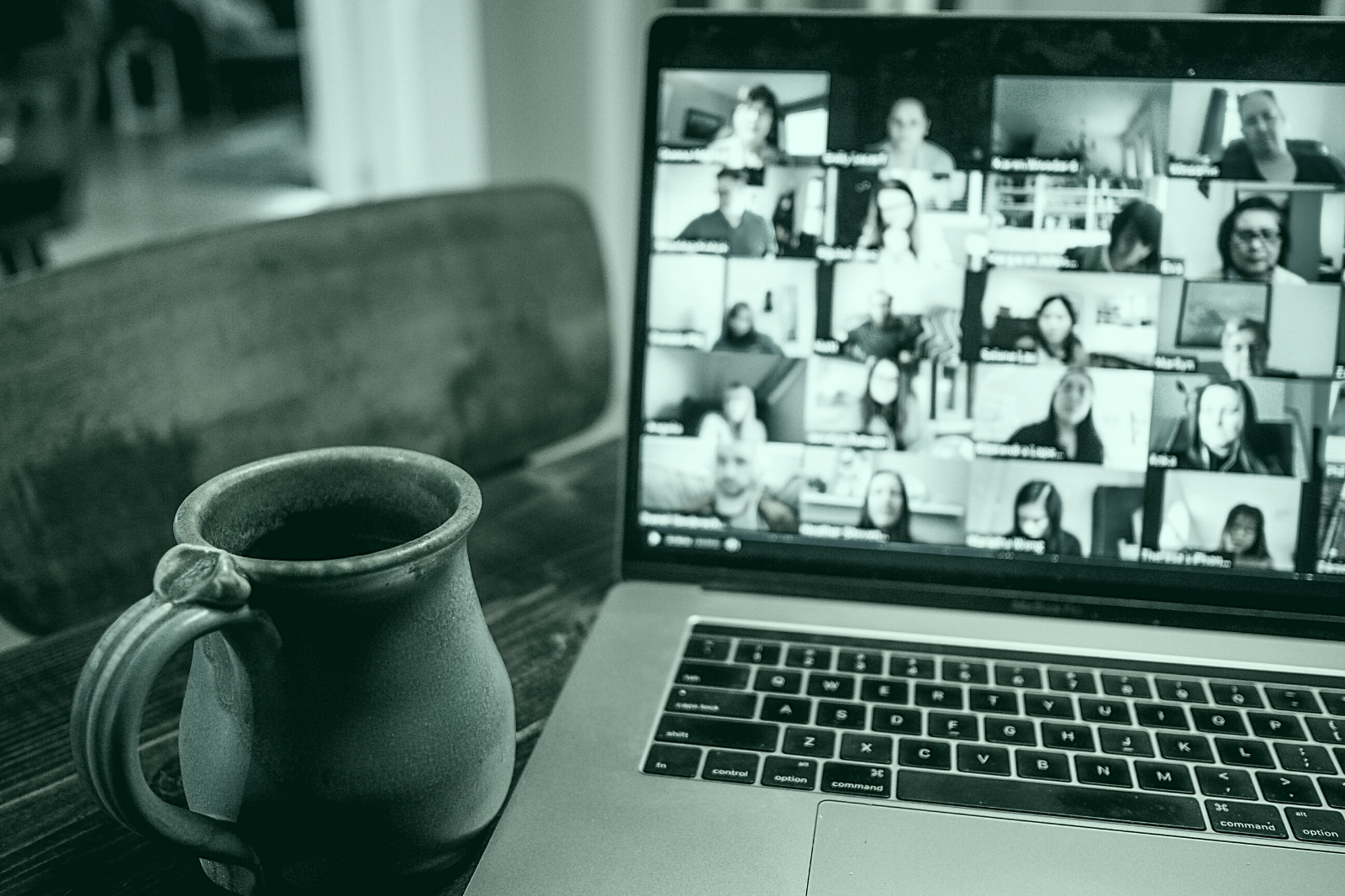In June, I wrote about the art of maintaining your professionalism during job interviews over Zoom. In the time warp that is 2020, that seems an age ago and over the last month or so a new challenge has emerged:
Zoom fatigue.
A number of the employers I work with have gone so far as to adjust their interviewing process, switching to phone interviews as they are feeling ‘zoomed out’.
You’ve probably been feeling some variation of this too. I’ve been feeling it, but have tried to brush it off as it seems illogical to be worn down by talking on a screen, which in theory is just a less involved version of in-person interviewing.
So why is Zoom so draining? Is there a solution to Zoom fatigue? And how do you make a strong impression in a telephone interview?
The science is in: virtual interviews are exhausting
There are a number of scientifically proven reasons why Zoom fatigue is being felt around the world. These include:
A lack of eye contact seriously impairs our ability to connect intellectually and emotionally
On a video call, making eye contact with the other people you are talking to is almost impossible. A 2017 Cambridge University Study found that eye contact between babies and adults played an important role in the synchronisation of their brainwaves. Eye contact also has an impact on our emotional intelligence. A 2019 study from the National Institute for Psychological Sciences in Japan found that direct eye contact is linked to our sense of empathy. Trying to communicate important information to someone who you are unable to connect with is frustrating and exhausting.
Gallery view makes it hard for our brains to focus
Zoom’s Gallery View function places a high demand on our brains by forcing them to multitask in a way that they’re not designed to. This is such a common issue in digital environments that psychologists have a term for it: continuous partial attention. It causes a ‘failure of awareness’ as the human brain is only able to focus on one small subset of a visual environment at a time.
The removal of non-verbal cues and reliance on eye contact makes it hard to convey meaning
We rely heavily on non-verbal cues to convey meaning to one another. In a Zoom meeting, non-verbal cues like hand gestures and body position are taken out of the equation, forcing us to rely more heavily on eyes and words. A 2015 University College London study found that being under another person’s gaze for prolonged periods of time is perceived as intimidating or overly intimate – these confusing signals to try and ignore when you’re trying to perform at your professional best.
Managing Zoom fatigue
Claude Normande, Associate Professor in Psychoeducation and Psychology at the Université du Québec en Outaouais, in Canada believes that over time, it’s possible we will adapt to communicating through digital environments. In the meantime, his main recommendation is to turn off your camera, so your brain is able to focus on the conversation rather than the muddle of visual information coming through your screen. Other tactics that can be useful include:
- Avoid multitasking – Your brain is already working hard to manage sound and visual cues, don’t make it’s task harder by answering email, scrolling on social or Googling as well.
- Wear earphones – This will minimise external ambient sounds.
- Set a meeting agenda (if possible) – Pre-planning like this creates a path you can follow without thinking about it too much, enabling you to focus on the topic at hand. Setting an agenda in advance may also reveal that video chatting is not necessary and the items of business can be managed by phone, email or group chat instead.
My telephone interview tips
As I said in my intro, a lot of the companies I work with are now switching over to telephone interviewing in a bid to avoid Zoom fatigue altogether. Here are my tips for making a strong impression over the phone:
- Take a shower, put on your makeup, get dressed, put on shoes- This helps put you in the professional mindset you’ll need to perform at your best
- Pre-prepared- Take an hour or so before the call to read up on the role description, the company, and your own resume. This ensures you have all the information fresh in your mind and don’t have to scramble searching for information whilst trying to maintain composure during the call. You can also use this time to create a cheat sheet of information that you can quickly refer to if absolutely necessary.
- Charge. Your. Phone.
- Prepare a space- Let the other members of your household know that you’ll be taking an important call at a particular time. Ask that they remain quiet and nominate a particular room in the house where you’ll take the call to ensure you are not disturbed.
- Be aware of your pitch and talking speed – Talking fast and in a higher pitch are classic signs of nervousness. If you find yourself slipping into these patterns, take a breath and slow down.
- Listen! – One of the most common pieces of feedback I get from my clients is that job candidates don’t listen and choose instead to launch into a monologue/sales pitch about themselves. Interviews require a degree of back and forth, and it’s crucial that employers know they can communicate with you.
Good luck with your job hunt and as always, I’m here if you need anything.
Iceberg, Melbourne’s go-to recruitment company! Specialising exclusively in recruiting for digital, marketing, PR, digital, experiential & advertising jobs. Permanent, freelance and contract roles available!. Sign up to our weekly newsletter HERE.


